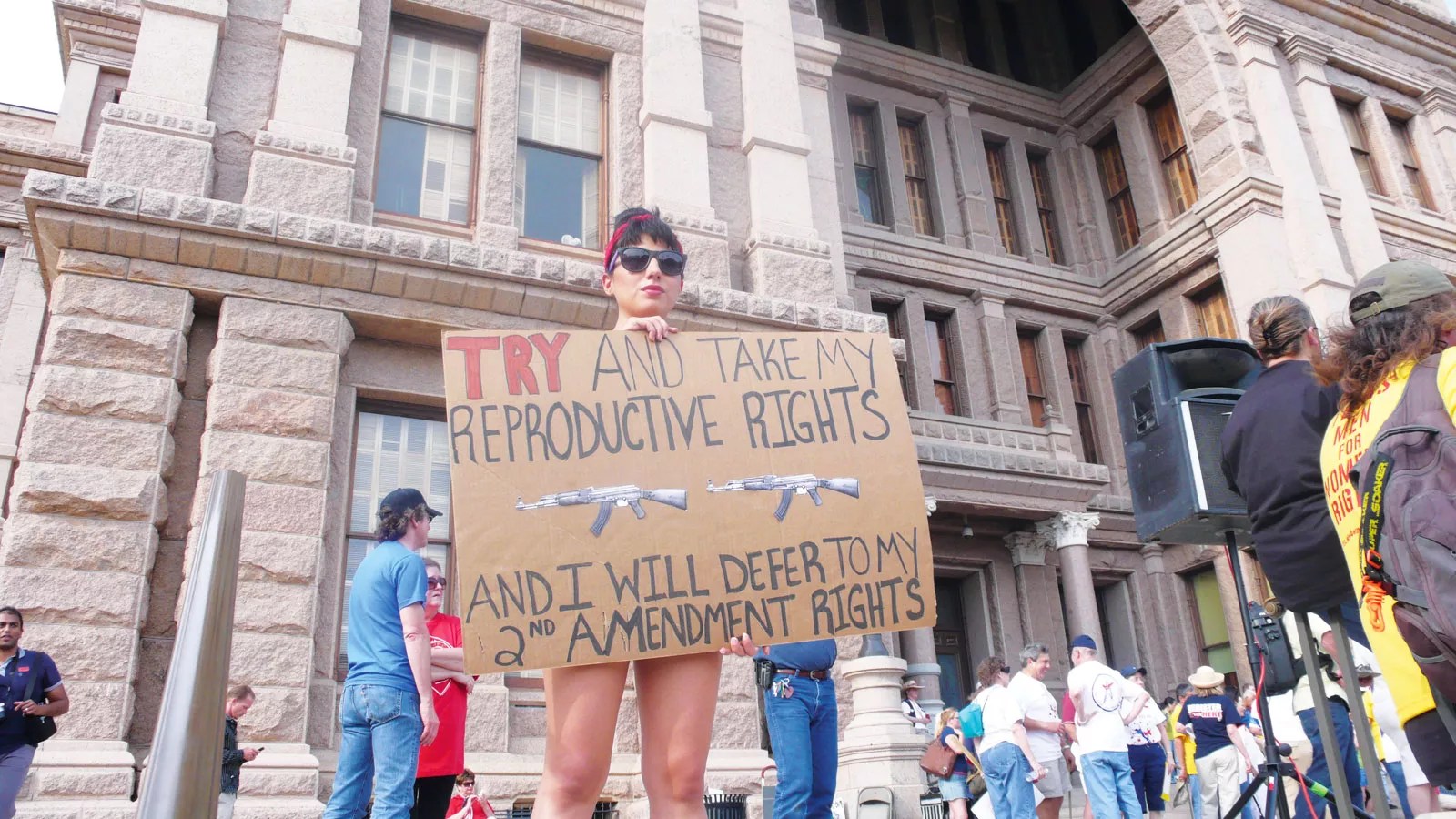
Anna Merlan

Audio By Carbonatix
Wednesday was big day in Austin for both Texas’ staunchest advocates against reproductive choice and the organizations that have fought tooth and nail at the Texas Capitol and in the courts against the advance of legislation that seeks to limit abortion to the absolute limit of what is allowed by Roe v. Wade, the 1973 Supreme Court decision that ruled abortion rights are protected by the Constitution.
For nearly 10 hours on Wednesday, the Texas Senate Health and Human Services Committee heard arguments about three of the biggest abortion bills on the docket during the 2017 legislative session: Senate Bill 8, which would create a state law banning partial-birth abortion; SB 258, which would require the burial of any tissue stemming from an abortion procedure; and SB 415, which would ban dilation and evacuation, the procedure most commonly used in second trimester abortions.
The testimony, save for a few key moments, walked the lines that have been drawn over the last decade, as anti-abortion politicians and lobbyists have pushed Texas law and pro-abortion rights groups have tried their hardest to hold their ground. Lucy Stein, the advocacy director for Progress Texas, lambasted each of the three laws as showing “utter disrespect” for Texas women. Anti-abortion witnesses repeatedly compared abortion to the Holocaust and referred to the now thoroughly debunked undercover Planned Parenthood videos released last year that purported to show Planned Parenthood officials discussing the sale of fetal tissue. It was fairly standard stuff, until John Seago, Texas Right to Life’s legislative director, and Joe Pojman, the executive director of the Texas Alliance for Life, began to testify.
Seago, whose group has pushed the idea behind SB 415 for over a year, said that bill is key to stopping abortions in Texas.
Dallas, make your New Year’s Resolution Count!
We’re $10,000 away from reaching our $30,000 year-end fundraising goal. Your support could be what pushes us over the top. If our work has kept you informed, helped you understand a complex issue, or better connected you to your community, please consider making a contribution today.
“Senate Bill 415 is the next step in educating the public about the violent nature of abortion and it will stop elective abortions,” Seago said.
The law, according to Seago, is specifically drafted to pass Supreme Court muster, following the path laid out by Anthony Kennedy’s decision in Gonzalez v. Carhart, which upheld the federal ban on partial-birth abortion.
In his testimony, Pojman outlined the surprising rift between his group, which presents itself as Texas’ moderate bastion of anti-abortion politics, and Texas Right to Life, hoping that the bill will serve as a breach in the wall that Roe v. Wade provides for abortion rights.
“With due respect for the author [of SB 415], we just don’t think the bill will survive a federal court challenge,” Pojman said. “We cannot recommend it to you. We’d love to believe that [Supreme Court Justice Anthony] Kennedy would support this. We told you he would support [the Texas anti-abortion law struck down by the Supreme Court in 2016]. We were wrong.”
It’s important, Pojman told the committee, for Texas’ anti-abortion legislators to do things that aren’t just good, but will work.
Banning dilation and evacuation procedures would limit the ways in which abortion providers can care for women seeking an abortion in their second trimester, according to pro-abortion rights advocates, without doing anything to promote public health.
“There is no discernible public health benefit to these bills,” Amanda Williams, executive director of the Lilith Fund, said. “Instead of passing laws that will increase costs for patients, perpetuate shame and stigma around abortions and force providers to practice medicine against their best judgment, our state leaders should focus on making sure all people of the power and community support so that they can make their reproductive decisions a reality.”
Each of three bills was left pending by the committee, subject to further action later in the session.